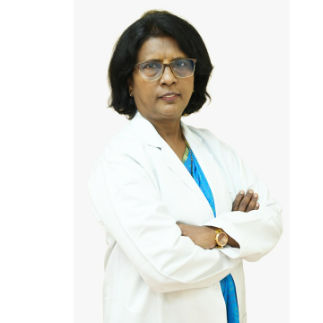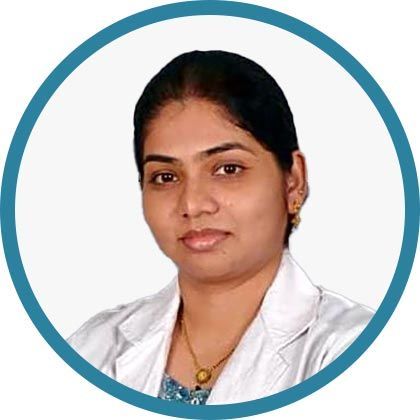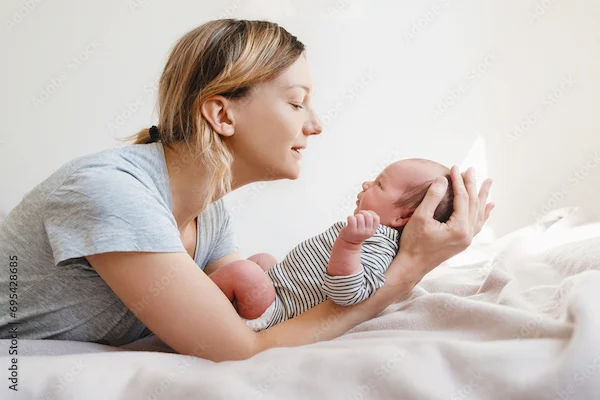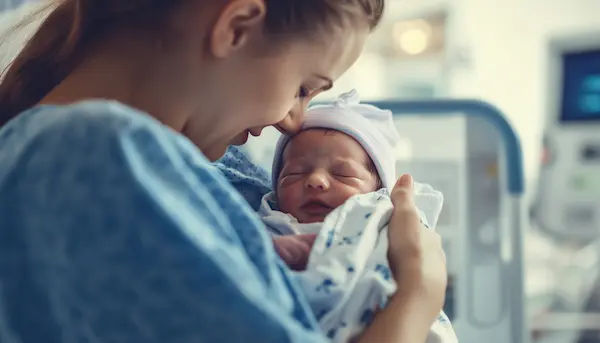Guide to Postpartum Care Taking Care After Giving Birth
Discover a complete guide to postpartum care, covering physical recovery, emotional well-being, C-section care, nutrition, sleep, intimacy, and when to seek medical help.

Written by Dr. Dhankecha Mayank Dineshbhai
Reviewed by Dr. Rohinipriyanka Pondugula MBBS
Last updated on 13th Jan, 2026

Introduction
Congratulations on the birth of your baby! As you embark on the incredible journey of motherhood, your focus naturally shifts to your newborn's every need. However, an essential part of caring for your baby is caring for yourself. The postpartum period, often called the "fourth trimester," is a time of significant physical and emotional transition after giving birth.
This comprehensive guide to postpartum care is designed to empower you with the knowledge and tools you need to navigate this recovery phase with confidence. We'll walk through what to expect in the hours, days, and weeks
following delivery, covering everything from physical healing and nutrition to emotional well-being and warning signs. Prioritising your health is not selfish; it is fundamental to being the best parent you can be.
The First 24-48 Hours: Immediate Postpartum Recovery
The initial days after delivery are all about rest and early healing. Your body is working hard to recover from the
monumental task of childbirth.
Managing Post-Birth Bleeding (Lochia)
Regardless of a vaginal or caesarean birth, you will experience vaginal bleeding and discharge called lochia. This isyour body's way of shedding the uterine lining. For the first few days, it will be bright red and heavy, possibly
containing small clots. This is normal. Use heavy-duty maternity pads, not tampons, to avoid infection. The flow will gradually lighten and change colour from pinkish-brown to yellowish-white over several weeks. If you soak a pad in an hour or pass large clots, contact your healthcare provider immediately.
Caring for Stitches and Tears
If you had a vaginal delivery with an episiotomy or tearing, keeping the area clean is crucial for healing. Use a perineal bottle filled with warm water to rinse the area every time you use the toilet. Pat dry gently from front to back. Ice packs can provide significant relief from swelling and pain in the first 24 hours. Avoid sitting directly on hard surfaces; a doughnut pillow can make sitting much more comfortable.
The First Postpartum Pee and Bowel Movement
It is important to urinate frequently, even if you do not feel the urge, to prevent urinary tract infections and help your uterus contract. The first bowel movement can be daunting, especially with stitches. Do not strain. Stay hydrated, eat high-fibre foods such as prunes, bran, and vegetables, and ask your doctor about a stool softener. Supporting your perineum with a clean pad while you bear down can reduce pressure and fear.
Consult Top Obstetricians
Your Physical Recovery: The First 6 Weeks and Beyond
Healing continues long after you leave the hospital. Understanding the postpartum recovery timeline helps you set
realistic expectations.
A. The Postpartum Body: What's Normal?
Your body will not "bounce back" overnight, and that is perfectly okay.
1. Afterpains and Uterine Involution
You may feel cramping, especially while breastfeeding, as your uterus contracts back to its pre-pregnancy size (a
process called involution). This is a positive sign that your body is healing.
2. Managing Postpartum Sweating and Swelling
It is common to sweat profusely, particularly at night, as your body flushes out excess fluids. Swelling in your hands and feet should also gradually subside.
B. Special Care for a C-Section Recovery
Recovering from major abdominal surgery requires extra caution. Your C-section incision care is especially important.
1. Incision Care and Pain Management
Keep the incision clean and dry. Your hospital will provide specific instructions. Take prescribed pain medication as
directed to stay ahead of the pain, which allows you to move more comfortably and aids healing.
2. Safe Movement After a C-Section
Avoid lifting anything heavier than your baby for the first few weeks. When getting out of bed, roll onto your side and use your arms to push yourself up rather than using your abdominal muscles. Gentle walking is encouraged to prevent blood clots, but listen to your body and rest often.
C. Nutrition for Healing and Energy
A healthy diet for breastfeeding mothers is also a healing diet for you. Focus on:
- Protein for tissue repair (lean meats, eggs, beans, lentils)
- Fibre to prevent constipation (whole grains, fruits, vegetables)
- Iron to replenish blood loss (leafy greens, fortified cereals)
- Calcium for bone health (dairy, fortified plant-based milk)
- Hydration, with plenty of water, especially if breastfeeding
D. The Challenge of Postpartum Sleep
Sleep deprivation is one of the biggest challenges. While "sleep when the baby sleeps" is classic advice, it is not always feasible. Prioritise rest above household chores. Enlist your partner, family, or friends to take shifts with the baby so you can get a solid 3–4 hour block of uninterrupted sleep, which is more restorative than short naps.
Your Emotional Well-being: More Than Just "Baby Blues"
Caring for your emotional health is as vital as physical recovery. This stage can bring rapid mood shifts, making
awareness crucial.
Understanding Postpartum Mood Disorders
Up to 80% of new mothers experience the "baby blues"—mood swings, crying spells, and anxiety that typically peak around day five and fade within two weeks. However, if these feelings intensify or persist, it could be a sign of a postpartum mood disorder such as postpartum depression (PPD) or anxiety. Symptoms include overwhelming sadness, anger, inability to bond with your baby, or intrusive thoughts. This is a medical condition, not a character flaw, and it is treatable. If these feelings persist beyond two weeks, consult a doctor online with Apollo24|7 for further evaluation and support.
Building Your Support System
You are not meant to do this alone. A strong support system is your greatest asset. Delegate tasks, be specific about your needs, and do not hesitate to accept help. Connecting with other new parents in support groups, either online or in person, can provide immense comfort and validation.
Key Relationships and Returning to Intimacy
Your relationship with your partner will evolve during this stage. Communication is key. Share your feelings and
encourage them to do the same. Returning to intimacy is a gradual process. Hormonal changes, fatigue, and vaginal dryness, especially if breastfeeding, can decrease libido. There is no "right" timeline. Focus on non-sexual intimacy first—cuddling, kissing, and simply talking. When you are ready, go slowly, use lubrication, and keep expectations realistic.
Warning Signs: When to Seek Medical Help
While some discomfort is normal, certain symptoms require immediate medical attention. Contact your doctor or go to the ER if you experience:
- Fever above 100.4°F (38°C)
- Foul-smelling vaginal discharge
- Signs of infection in a C-section incision (redness, swelling, pus)
- Heavy bleeding (soaking a pad in an hour)
- Severe headache with vision changes (possible preeclampsia)
- Pain or redness in your calf (possible blood clot)
- Thoughts of harming yourself or your baby
Conclusion
Navigating the postpartum journey is a unique and personal experience. By understanding the changes your body and mind are going through, you can advocate for your needs and foster a healthy recovery. There is no single "right" way to heal. The goal is not to return to your old self, but to integrate this profound experience into a stronger, new version of you.
Prioritise rest, nourish your body, communicate your needs, and celebrate small victories each day. If at any point you feel unsure or concerned about your recovery, booking a physical visit to a doctor with Apollo24|7 can provide the reassurance and medical guidance you need.
Consult Top Obstetricians
Consult Top Obstetricians

Dr. Nilanjana Das
Obstetrician and Gynaecologist
5 Years • MS (O&G)
Guwahati
Apollo Personalized Health Check Centre, Guwahati

Dr. Swati Shah
Surgical Oncologist
15 Years • DNB Surgical Oncology, certified Robotic Cancer Surgeon
Ahmedabad
Apollo Hospitals Gandhinagar, Ahmedabad
(25+ Patients)

Dr. Abirami S
Obstetrician and Gynaecologist
10 Years • MBBS.MS(OBG).FMAS
Chennai
Apollo Women Hospitals Thousand Lights, Chennai
(25+ Patients)

Dr. Mangla Kawade
Infertility Specialist
30 Years • MBBS, MD (Obs & Gyn) .Infertility Specialist - Laparoscopic Surgeon (Obs & Gyn),Gynecologist.
Bhopal
Apollo Sage Hospitals, Bhopal

Dr. Vidya Konduri
Obstetrician and Gynaecologist
13 Years • MS
Chinagadila
Apollo Hospitals Health City Unit, Chinagadila
(50+ Patients)
Consult Top Obstetricians

Dr. Nilanjana Das
Obstetrician and Gynaecologist
5 Years • MS (O&G)
Guwahati
Apollo Personalized Health Check Centre, Guwahati

Dr. Swati Shah
Surgical Oncologist
15 Years • DNB Surgical Oncology, certified Robotic Cancer Surgeon
Ahmedabad
Apollo Hospitals Gandhinagar, Ahmedabad
(25+ Patients)

Dr. Abirami S
Obstetrician and Gynaecologist
10 Years • MBBS.MS(OBG).FMAS
Chennai
Apollo Women Hospitals Thousand Lights, Chennai
(25+ Patients)

Dr. Mangla Kawade
Infertility Specialist
30 Years • MBBS, MD (Obs & Gyn) .Infertility Specialist - Laparoscopic Surgeon (Obs & Gyn),Gynecologist.
Bhopal
Apollo Sage Hospitals, Bhopal

Dr. Vidya Konduri
Obstetrician and Gynaecologist
13 Years • MS
Chinagadila
Apollo Hospitals Health City Unit, Chinagadila
(50+ Patients)
More articles from Postpartum preeclampsia
Frequently Asked Questions
Q1. How long does postpartum bleeding typically last?
Postpartum bleeding (lochia) can last for 2 to 6 weeks. It starts heavy and red, gradually becoming lighter and changing to a pink or brown colour, and finally a yellowish-white before stopping completely.
Q2. When is it safe to start exercising after giving birth?
For an uncomplicated vaginal delivery, gentle walking can often be started within days. More strenuous exercise is usually cleared at your 6-week postpartum check-up. After a C-section, you will need to wait longer, typically 6–8 weeks, and get your doctor's approval.
Q3. What are the main differences between baby blues and postpartum depression?
Baby blues are mild, temporary mood swings that resolve within two weeks. Postpartum depression is more intense, persistent, and interferes with your ability to function. Symptoms include severe sadness, hopelessness, and lack of interest in your baby.
Q4. When should I have my first postpartum check-up?
Most healthcare providers schedule a comprehensive postpartum check-up around 6 weeks after delivery. This appointment assesses your physical recovery, discusses contraception, and screens for postpartum mood disorders.
Q5. Is it normal to lose hair after having a baby?
Yes, postpartum hair loss is very common. During pregnancy, high oestrogen levels reduce hair shedding. After delivery, hormone levels drop, causing more hair to enter the shedding phase at once. This usually peaks around 4 months postpartum and resolves on its own.

